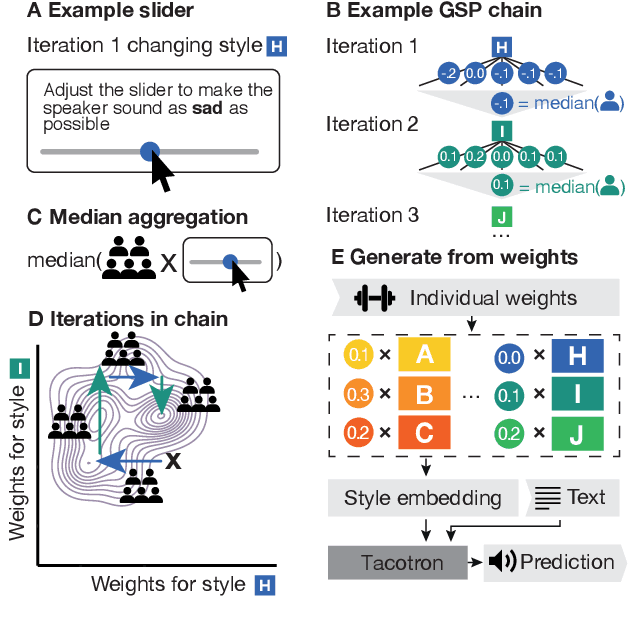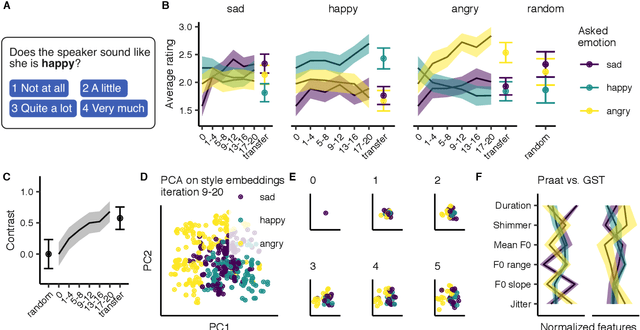Exploring emotional prototypes in a high dimensional TTS latent space
Paper and Code
May 05, 2021

Recent TTS systems are able to generate prosodically varied and realistic speech. However, it is unclear how this prosodic variation contributes to the perception of speakers' emotional states. Here we use the recent psychological paradigm 'Gibbs Sampling with People' to search the prosodic latent space in a trained GST Tacotron model to explore prototypes of emotional prosody. Participants are recruited online and collectively manipulate the latent space of the generative speech model in a sequentially adaptive way so that the stimulus presented to one group of participants is determined by the response of the previous groups. We demonstrate that (1) particular regions of the model's latent space are reliably associated with particular emotions, (2) the resulting emotional prototypes are well-recognized by a separate group of human raters, and (3) these emotional prototypes can be effectively transferred to new sentences. Collectively, these experiments demonstrate a novel approach to the understanding of emotional speech by providing a tool to explore the relation between the latent space of generative models and human semantics.
 Add to Chrome
Add to Chrome Add to Firefox
Add to Firefox Add to Edge
Add to Edge